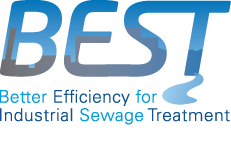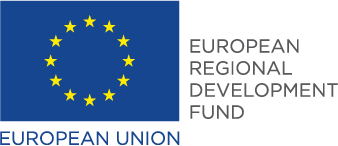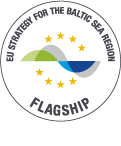Guidelines for management of industrial wastewater
Produced documents
Guidelines for management of industrial wastewater in the Baltic Sea Region
Policy brief – Towards improved management of industrial wastewaters
Policy brief available in English, Russian, Finnish, Estonian, Polish, Latvian and Swedish
Summary
The aim of project BEST was to improve the treatment and management of industrial wastewaters in the Baltic Sea Region (BSR) and to reduce the environmental impact caused by industrial wastewaters co-treated with domestic wastewater at municipal wastewater treatment plants (WWTPs). Therefore, one of the main goals of the project was to provide recommendations and guidelines towards improved management of industrial wastewaters.
Why
The aim was to give guidance to legislative, permitting and supervising authorities at different levels, and water utilities affected by industrial wastewaters as well as industrial operators conveying industrial wastewater to the sewer. Another aim was to identify the most important obstacles for the successful implementation of existing legislation and best practices, and to identify the possible solutions to overcome these obstacles.
How
The guidelines are based on the work carried out by the BEST project partners and their national groups of experts representing e.g. water utility and industrial associations, environmental authorities, consultants and universities. In addition, the consultant’s international expert team provided information from Germany and Sweden. John Nurminen Foundation and AFRY Finland Oy gathered all this information together into the guidelines document.
The guidelines are divided into four categories: Guidelines for legislative and institutional developments, Guidelines for the co-treatment and pretreatment of industrial wastewaters, Guidelines for industrial wastewater contracts and Guidelines for cooperation. Furthermore, there are national annexes for all BEST partnership countries about key challenges and recommendations.
The main recommendations are
Legislative and institutional developments
• Industry’s responsibility to pretreat their wastewater should be included in national legislation.
• The role of industrial wastewater contracts should be defined in national legislation.
• Environmental permits should be granted on a sufficiently high level independent from local interests.
• Water utilities and municipal wastewater treatment plants (WWTPs) need to be provided with real influence in industrial permit conditions by requesting their comments during the course of the permitting process.
• Authorities and water utilities should be able to carry out inspections on an industrial property and repeated misconducts should lead to fines and eventually to closure of the polluting facility.
• Independent regional water utility companies or centralized wastewater treatment is seen as a solution for preventing local economic and industrial policy from affecting the management of industrial wastewaters.
Co-treatment and pretreatment of industrial wastewaters
• Co-treatment can be an efficient way to treat industrial wastewaters when industrial wastewaters are monitored, there is good cooperation between the WWTP and the operator, and the WWTP has sufficient capacity.
• Accidental leaks and load peaks must be prevented by risk management planning of industrial operators.
• On-site pretreatment of industrial wastewater is necessary if the operator is otherwise unable to meet limit values and restrictions.
• If industrial wastewater contains hazardous substances that cannot sufficiently be removed on-site, wastewaters should be collected and delivered to a hazardous waste treatment plant.
• It is recommended that industrial sludges are to be received only if the quality has been analysed and the WWTP gives permission for unloading.
Industrial wastewater contracts
• Water utilities should systematically map out the sources of industrial wastewaters.
• When drafting contractual terms, chemical lists and properties of chemicals used should be examined and BAT reference documents and BAT conclusions considered.
• Starting the negotiation process with a visit to the operator is highly recommended for facilitating negotiations and improving further cooperation.
• Contracting parties need to negotiate the changing of existing contracts. The argument for updating a contract could be e.g. changes in legislation or in the operations of either of the parties, or significant changes in other conditions compared to the original moment of signing.
• New contracts need to include specific terms for changing the contractual terms. It is recommended to set new contracts for a limited time period.
• Sampling procedures and the extent of analyses are agreed upon in the monitoring programme. The contents of a monitoring programme have to be considered case specifically according to the amount and quality of the wastewater and the pollutants and hazardous substances potentially ending up in the wastewater.
• The water utility needs to have the right to inspect the operator’s pretreatment, sampling and discharge arrangements and take additional samples without prior notice. The right for visits and procedures for visiting the premises of the operator should be agreed upon in the contract.
• Equal limit values and restrictions on the quality or the amount of industrial wastewater should be given to operators in the same industry.
• It should be stated in industrial wastewater contracts that the diluting of industrial wastewaters is prohibited for the purpose of avoiding the exceeding of concentration limits.
• Increased industrial wastewater fees are usually used for covering increased treatment costs caused by industrial wastewaters. National calculation formulas are highly recommended to be determined in all BSR countries.
• The operator must immediately inform the water utility on exceptional emissions and any other unusual situations affecting the quality or amount of wastewater. Notification obligation should be stated in the contract.
• The consequences for violating contractual terms need to be defined in the contract. A penalty clause is strongly recommended for all contracts.
• The contract should obligate the operator to be liable for any harm or damage caused by the industrial wastewaters, including any additional maintenance costs.
• It is recommended to set new contracts for a limited duration (e.g. 2‒5 years). If a contract is set to be valid until further notice, it needs to include specific terms to enable changing the contractual terms and terminating the contract.
• The contract needs to state clearly the terms for terminating the contract. In addition, water utility must have the right to break off discharge of industrial wastewater to the municipal sewer to avoid immediate danger to network or treatment plant.
• Annexes or sections of a contract containing the operator’s business secrets may be marked as confidential but it is not recommended to set the whole contract as confidential.
Cooperation
• Industrial wastewater contracts should include a chapter on cooperation and an obligation to set up yearly meetings between the contracting parties.
• The yearly meetings can be combined with the inspection of environmental authorities. Inviting operators for a guided tour on the WWTP is recommended.
• It is recommended for the water utility to publish an annual or periodic report on industrial wastewater to share information and improve transparency.
• The terms of environmental permits and industrial wastewater contracts should be harmonised. It is recommended to send the contracts to environmental authorities.
• Regular (at least yearly) meetings between the water utility and the environmental authorities are strongly recommended.
• It is recommended for all BSR countries to develop national guidelines in their national language for controlling industrial wastewaters.
John Nurminen Foundation



